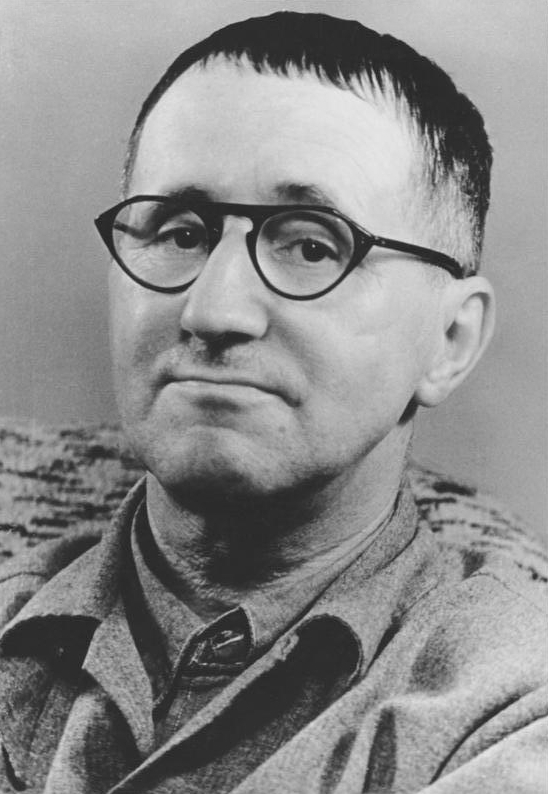Bertolt Brecht nejznámější citáty
Bertolt Brecht: Citáty o lásce
Bertolt Brecht: Citáty o lidech
Bertolt Brecht citáty a výroky

„Kdo nezná pravdu, je pouze hlupák, ale kdo ji zatajuje, je zločinec.“
Varianta: Kdo nepozná pravdu, je jenom hlupák, ale kdo ji zatajuje, je zločinec.



Bertolt Brecht: Citáty anglicky
"Speech to Danish working-class actors on the art of observation" [Rede an dänische Arbeiterschauspieler über die Kunst der Beobachtung]] (1934), from The Messingkauf Poems, published in Versuche 14 (1955); trans. John Willett in Poems, 1913-1956, p. 235
Poems, 1913-1956 (1976)
"Christmas legend" [Weinachtslegende] (1923), Berliner Börsen-Courier (25 December 1924); trans. in Poems, 1913-1956, p. 99
Poems, 1913-1956 (1976)
“I see with sympathy
The swollen veins on his brow, showing
How exhausting it is to be evil.”
Mitfühlend sehe ich
Die geschwollenen Stirnadern, andeutend
Wie anstrengend es ist, böse zu sein.
"The Mask of Evil" ("Die Maske des Bösen"), as translated in Brecht on Brecht: An Improvisation (1967) by George Tabori, p. 14
“War is like love, it always finds a way.”
The Chaplain, in Scene 6, p. 76
Mother Courage and Her Children (1939)
A response to the Nazi book burnings, "The Burning of the Books"
The Trial of Lucullus (1940), Brecht Collected Plays, vol. 4, p. 386.
Referring to Arturo Ui (representing Adolf Hitler), in The Resistible Rise of Arturo Ui (1941)
Aber etwas fehlt
Jim[my] Mahoney, in Rise and Fall of the City of Mahagonny (1930)



